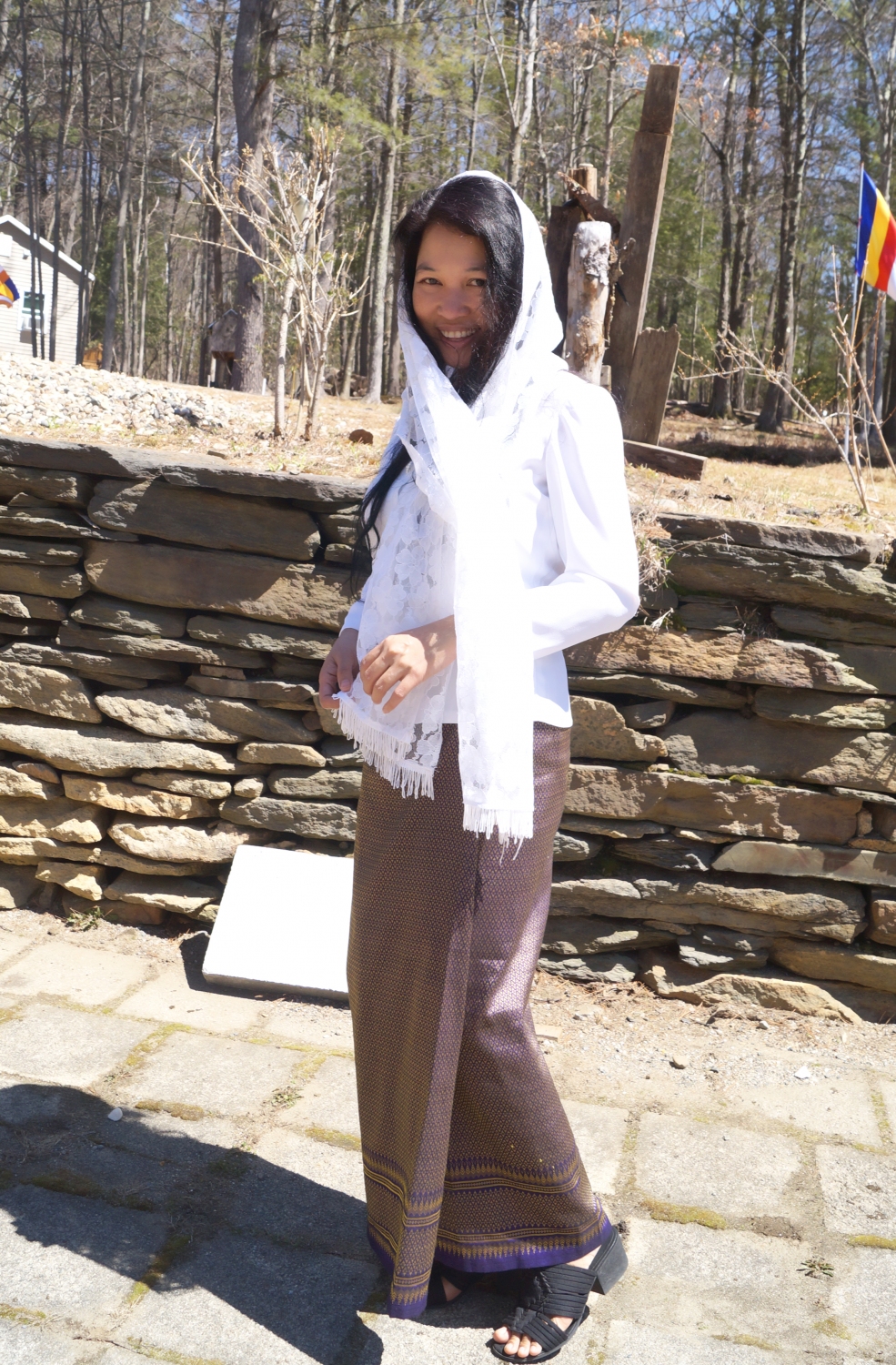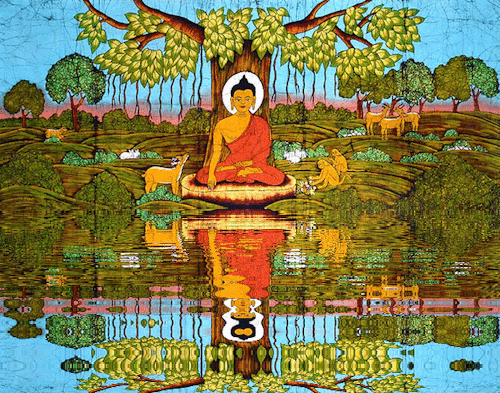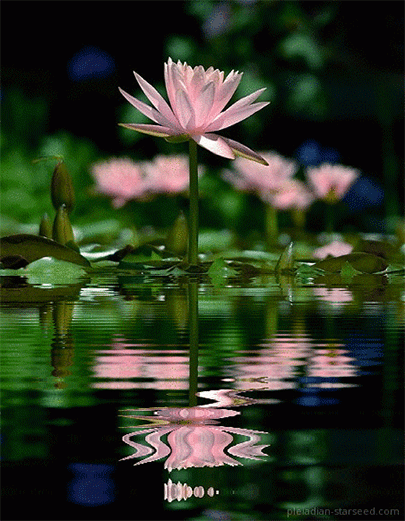
Verse 82: Like a lake which is deep, clear and calm, the wise after listening to the Teaching (Dhamma) become serene.
The Story of Kanamata
While residing at the Jetavana monastery, the Buddha uttered Verse (82) of this book, with reference to the mother of Kana, Kanamata.
Kanamata was a devoted lay disciple of the Buddha. Her daughter Kana was married to a man from another village. As Kana had been on a visit to her mother for some time, her husband sent a message for her to come home. Her mother told her to wait for one more day as she wanted to send along some sweetmeats with her for her husband. The next day, Kanamata made some sweetmeats, but when four bhikkhus stood at her door for alms, she offered some to them. The four bhikkhus told other bhikkhus about the sweetmeats from Kanamata’s house and they also came to stand at the door of Kanamata, as a devotee of the Buddha and his disciples, offered her sweetmeats to the bhikkhus as they came in, one after another. The result was that in the end there was none left for Kana and she did not go home on that day. The same thing happened on the next two days; her mother made some sweetmeats, the bhikkhus stood at her door, she offered her sweetmeats to the bhikkhus, there was nothing left for her daughter to take home, and her daughter did not go home. On the third day, for the third time, her husband sent her a message, which was also an ultimatum stating that if she failed to come home the next day, he would take another wife. But on the next day also Kana was unable to go home because her mother offered all her sweetmeats to the bhikkhus. Kana’s husband then took another wife and Kana became very bitter towards the bhikkhus. She used to abuse all bhikkhus so much so that the bhikkhus kept away from the house of Kanamata.
Continue reading →


















